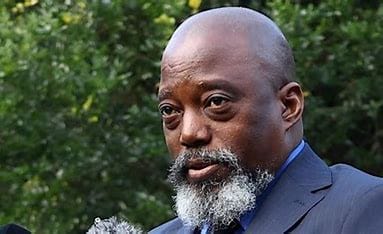The Senate of the Democratic Republic of Congo (DRC) has voted overwhelmingly to lift the parliamentary immunity of former President Joseph Kabila, allowing for legal proceedings related to accusations that he supported the Rwanda-backed M23 rebel militia in the country’s volatile eastern region.
The motion passed Thursday with 88 votes in favor and 5 against, marking a significant escalation in the ongoing political and security crisis affecting the mineral-rich eastern provinces. Kabila, who ruled the DRC from 2001 to 2019, now faces charges including treason, war crimes, crimes against humanity, and involvement in an insurrectionary movement.
President Felix Tshisekedi, who succeeded Kabila, has repeatedly accused the former leader of collaborating with the M23, which has intensified its offensive in the east, deepening a conflict that has lasted over 30 years.
Absent from the chamber during the vote, Kabila has been out of the country since 2023, with his whereabouts remaining undisclosed. His immunity, granted by virtue of his status as a senator for life, had previously shielded him from prosecution.
A special 40-member Senate commission reviewed a request by the military prosecutor’s office to remove Kabila’s immunity. The commission unanimously recommended lifting it, a decision the Senate adopted despite constitutional debates over the required parliamentary thresholds.
Central to the case is testimony from opposition figure Eric Nkuba, who alleged that Kabila advised the M23’s leader to pursue a coup against Tshisekedi. While some analysts suggest Nkuba’s testimony was obtained under pressure, the military prosecutor has maintained its credibility.
Though evidence of Kabila’s financial and logistical support for the M23 remains classified, prosecutors have assured the Senate of its existence.
In the months preceding the vote, Kabila has openly criticised the Tshisekedi administration, and his political party, the People’s Party for Reconstruction and Democracy (PPRD), has faced suspension, with raids conducted on several properties linked to him.
Political observers warn that the move could deepen national divisions. Analyst Ithiel Batumike described the decision as a political maneuver aimed at diminishing Kabila’s influence, while PPRD officials dismissed the prosecution as a distraction from urgent national issues.
Christian Moleka, a Congolese political expert, cautioned that the vote risks increasing polarization and radicalization, potentially undermining efforts toward political stability.
As the DRC grapples with enduring conflict and fragile governance, this development underscores the complex challenges facing the nation’s path to peace and accountability.



